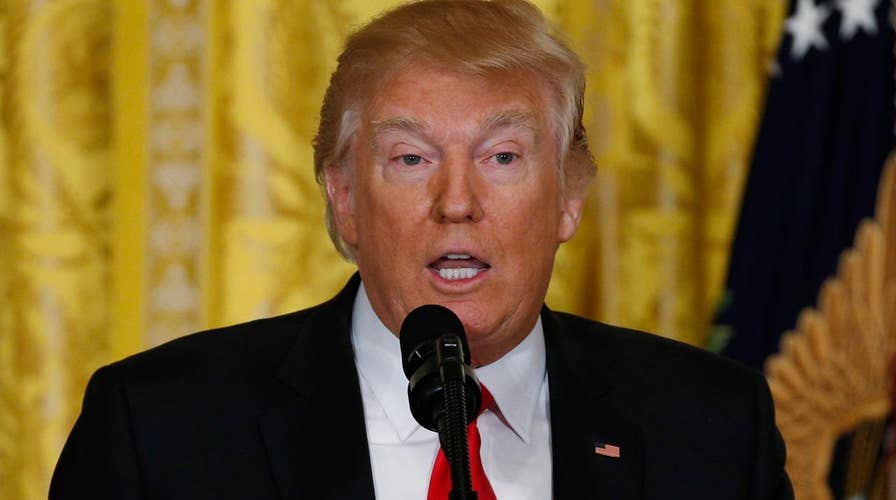Trump: Intel leaks will stop as we get our people in place
President answers John Roberts' question at White House news conference
Editor's note: The following article originally appeared in City Journal, a publication of the Manhattan Institute.
Call it the Oval Office virus. After less than a month in office, President Donald J. Trump, who as a candidate embraced WikiLeaks and a torrent of leaks about his rival Hillary Clinton’s campaign, has become a champion of government secrecy. In a rowdy, 77-minute press conference Thursday, Trump said he had personally instructed the Justice Department to open a criminal investigation into the leak of embarrassing information about his conversations with foreign leaders and former National Security Adviser Michael T. Flynn’s contacts with Russia. While it is unusual for a president to ask for such a criminal investigation, or to discuss it publicly, no law prevents him from doing so. “It could be perceived as a political witch hunt,” warned Susan Hennessey, a scholar at the Brookings Institution and former intelligence agency lawyer.
Trump launched his war on leaks—and leakers—two Saturdays ago at a charity dinner at Mar-a-Lago, his “winter White House” in Palm Beach, Florida. When I interviewed him at the Red Cross ball, Trump denounced the leaks of transcripts of his phone conversations with leaders of Australia and Mexico as “disgraceful” and “very dangerous . . . for this country,” and blamed the unauthorized release of the information on “Obama people.” Political holdovers from the previous administration still serving on his White House and National Security Council staff, he said, were being “replaced.”
When leaks continued this week, Trump and top aides expanded the category of likely culprits to include the “intelligence community”—specifically, the “NSA and FBI?” he tweeted. “Just like Russia,” he fumed. White House spokesman Sean Spicer then chimed in, adding Justice Department officials to the legion of suspected loose lips.
Trump is hardly the first president to resent leaks. Barack Obama vowed to run the most open and “transparent” government possible, but wound up overseeing at least nine leak investigations and prosecuting more whistleblowers than all his predecessors combined. David Sanger, my former colleague at the New York Times and a veteran Washington insider, called Obama’s White House the “most closed, control-freak administration I’ve every covered.”









































